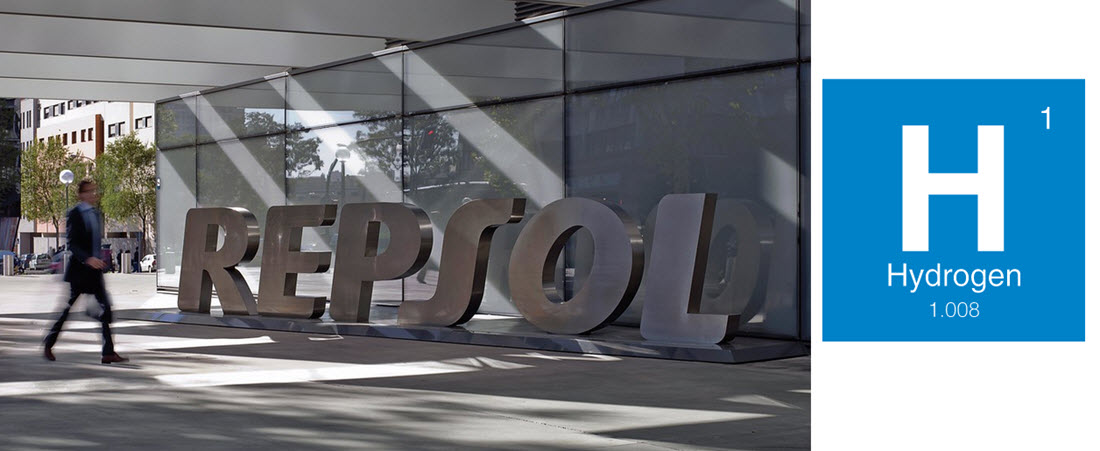
- Repsol has the ambition to be a leader in renewable hydrogen in the Iberian Peninsula by reaching a production of the equivalent of 400 MW by 2025 and with the ambition of exceeding 1.2 GW in 2030
Repsol’s new Strategic Plan accelerates the energy transition.
Repsol unveiled its strategic plan for the years 2021 to 2025, during which it will advance in its net zero emissions objective with a project that accelerates transformation while maintaining a strong cash flow to finance ambitious growth and attractive shareholder distribution.
- Repsol today unveiled its 2021-2025 Strategic Plan which will transform the company in the following years, accelerating the energy transition and ensuring return and the highest value for shareholders.
- The new strategy outlines a challenging roadmap with more ambitious intermediate emissions cuts targets to successfully achieve zero net emissions by 2050. Repsol will decarbonize its asset portfolio and establish a new operating model.
- The new strategic plan contemplates an investment of €18.3 billion between 2021 and 2025, of which €5.5 billion – 30% – will be spent on low-carbon businesses.
- The renewed strategy is self-financing at an average of $50 per barrel of Brent and $2.5 per MBtu at the Henry Hub. At these prices, the company can generate cash to cover investments and dividends throughout the period, without increasing debt from current levels.
- Repsol will evolve its organization into four business areas (Up-stream, Industrial, Customer, and Low-Carbon Generation), supported by more efficient corporate and service units to favor differentiated results and value crystallization.
- The company will maintain shareholder distribution amongst the most attractive in the industry and the Spanish Ibex-35 Index, combining a cash dividend with share buy-backs. The cash dividend will be set at €0.60 per share and rise to €0.75 per share. Including buybacks, it can exceed €1 per share in 2025.
The company will decarbonize its asset base and implement a new operating model that will extract value from its current strengths as well as add new pillars to support the company’s future such as the Customer and Low-Carbon Generation Businesses. By 2030, Repsol will be a company that is renewed, more sustainable, and more focused.
The new strategy will be highly flexible in relation to the macroeconomic environment. It is being set in motion at a time of historic difficulty to which Repsol already responded with its Resilience Plan 2020 that produced positive cash flow in every business in the first nine months of the year and estimated savings for the whole year of €2.4 billion.
In this highly uncertain environment, the company has established two differentiated periods in its Strate-gic Plan. In the first two years, it will focus on ensuring financial strength, extending the efficiency and competitivity programs which began in March of this year.
The Strategic Plan is self-financing at an average $50 per barrel of Brent and $2.5 per MBtu at the Henry Hub. At these prices, the company can maintain a high degree of financial flexibility and keep debt unchanged from current levels through 2025.
During the first period of the plan, efficiency, investment cuts, and optimization of capital will be prioritized together with projects to lead the energy transition, including those already announced for the Bilbao and Cartagena refineries and the numerous renewable energy projects that Repsol is currently building. From 2022, with recovery from the impact of Covid-19, the focus will shift to the acceleration of growth.
A total of €18.3 billion will be invested during the new five-year plan. Low-carbon spending will reach €5.5 billion between 2021 and 2025 – 30% of the total – which will be accompanied by a continued international expansion. Over the course of the period, Repsol aims to substantially increase EBITDA, to more than €8.2 billion in 2025.
In a scenario of continued higher prices, Repsol will accelerate the growth of low-carbon projects in its portfolio.
- “With this new Strategic Plan, which leverages our strengths, we are taking a significant step towards becoming a net zero emissions com-pany, outlining a profitable and realistic roadmap that will allow us to grow, maximize value for our shareholders, and assure the future.”
- “Our strategy is based on a multi-energy offering that combines all the technologies for decarbonization of energy. We will be more efficient and increase our renewable energy objectives as well as our manufac-ture of products with a low, neutral, or even a negative carbon foot-print. We will promote circular economy initiatives, develop new ener-gy solutions for our customers, and boost cutting-edge projects to re-duce the industry’s carbon footprint.”
Read the most up to date Fuel Cell and Hydrogen Industry news at FuelCellsWorks




